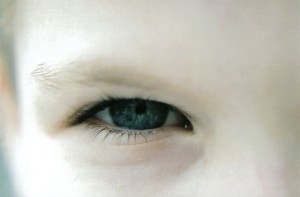Do you know what it feels like to be seen? That wonderful exchange between you and a gracious friend or loved one, who really steps outside their own experience to see you in yours, do you know what I mean?
One of my teachers at one of my programs, James Flaherty, asked me an intense question once. He asked, have you noticed how many people in our world are doing out of the ordinary things, just for the sake of being seen? His examples were about recent Olympians who had felt like if they didn’t win gold, all would be for not. And, I extended this notion, what about people who misbehave? For example, sometimes criminals seem to me to be just acting out for the attention they perhaps did not receive as a child. What about the loud, obnoxious person in a restaurant, about which we always say, “Oh, ignore him, he just wants attention.” Yes! That’s exactly what he wants, and perhaps a question we could ask ourselves is why someone needs attention so badly that they must act in uncomfortable or inappropriate ways to receive it. continue reading »
 I have recently started reading the book: Shambhala: The Sacred Path of the Warrior, described as a “practical guide for enlightened living.” In it, author Trungpa talks about breaking old habitual patterns. He says that calling someone a toranoko- a Japanese term for tiger cub, used pejoratively is saying this “you mean that he is a paper tiger, someone who appears brave but is actually a coward.” And Trungpa then makes the declaration, “That is the description of clinging to habitual patterns.”
I have recently started reading the book: Shambhala: The Sacred Path of the Warrior, described as a “practical guide for enlightened living.” In it, author Trungpa talks about breaking old habitual patterns. He says that calling someone a toranoko- a Japanese term for tiger cub, used pejoratively is saying this “you mean that he is a paper tiger, someone who appears brave but is actually a coward.” And Trungpa then makes the declaration, “That is the description of clinging to habitual patterns.”
Likely, most of us aspire to be more like real, living tigers rather than paper ones, so why all the focus on not clinging to habitual patterns?
Thinking about what a habitual pattern is, I realized there is a neurological aspect occurring simultaneous to the display of the habit. In our brains, after we pass the age of three, we are mature enough to start making neural connections based on experience. Up to that point, our Limbic System is primarily driving our behavior. The Limbic System encompasses the functions we share with the animal kingdom, including such things as our “fight or flight” responses, our capacity for infatuation, as well as our process to store memories as pictures (as we mature we include narrative with memory). continue reading »

